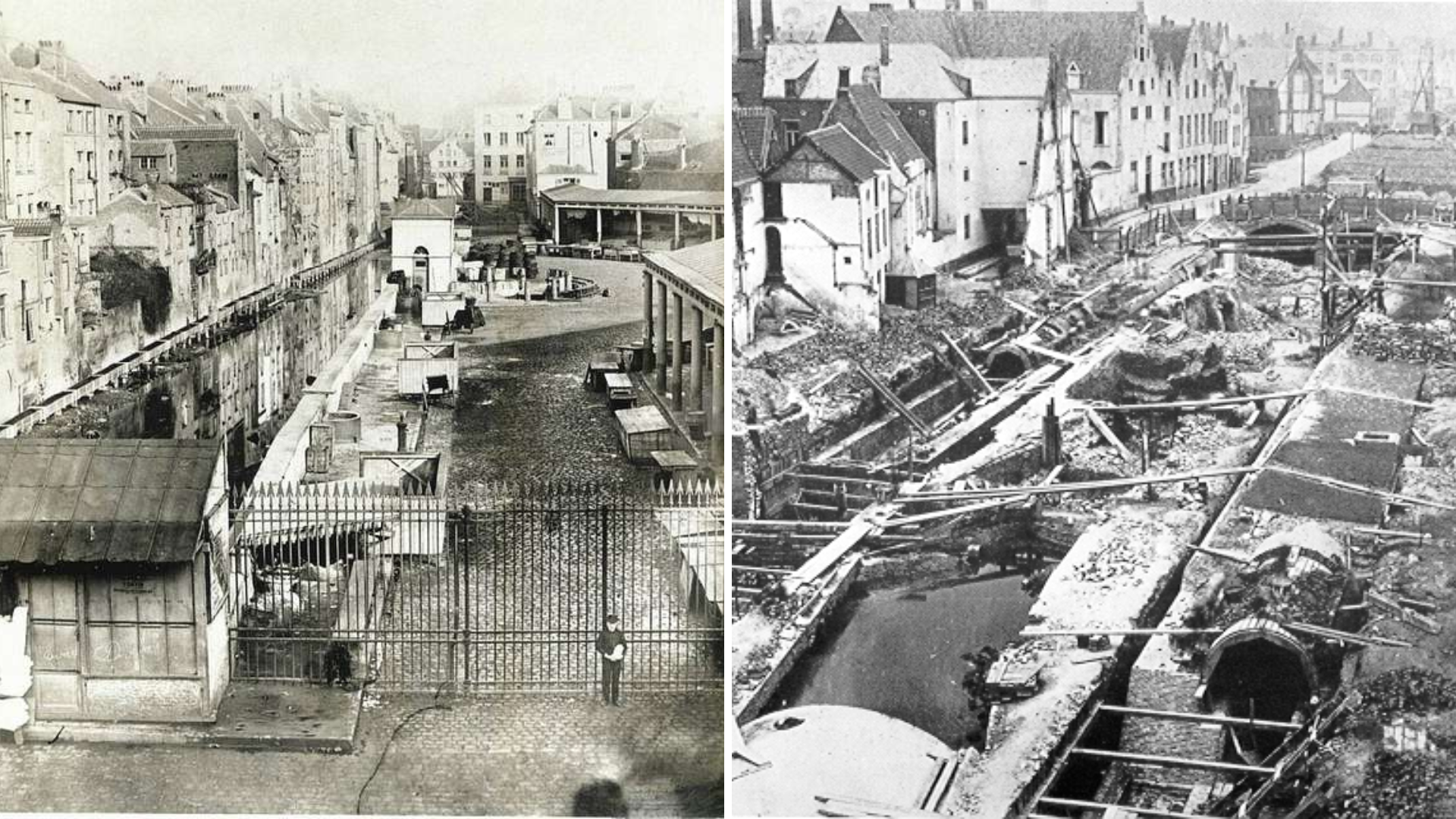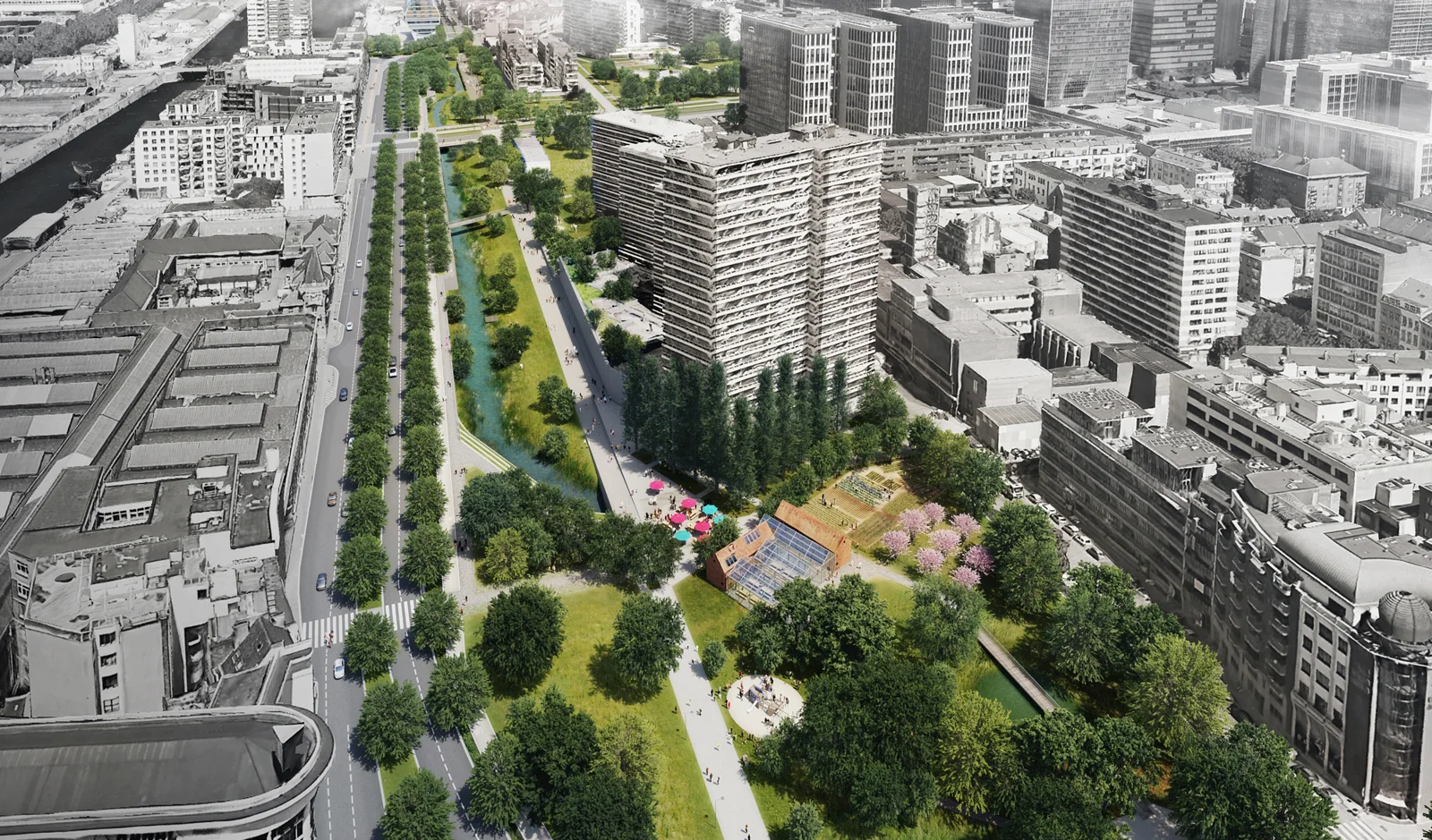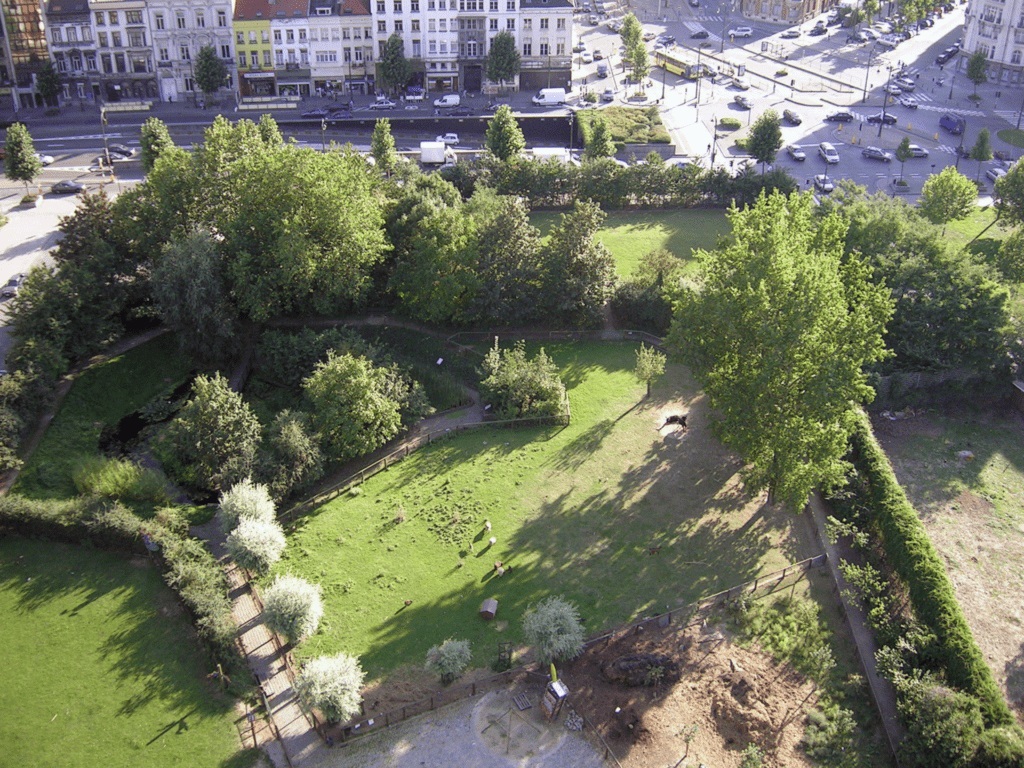Brussels' very own forgotten river, which was completely covered in 1871 due to hygiene and urban development concerns, will once again see the surface in the Belgian capital after nearly 150 years.
A planning permit for the redevelopment of Brussels' Maximilien Park has officially been granted, confirmed Brussels' Secretary of State for Urban Planning, Ans Persoons (Vooruit). This project notably involves restoring the historic river Senne.
The initiative, called Max-sur-Zenne project, is part of the Citroën-Vergote Urban renewal contract, a regional programme that aims to revitalise multiple municipalities. The project, which was developed with the participation of local residents, wants to offer "a corner of the city where nature once again has an essential role."
Construction works are set to start in 2025.
"The permit was delivered yesterday, which means that the construction work can begin shortly by Bruxelles Environnement," a spokesperson for Ans Persoons told The Brussels Times. "The works are planned to start in the first semester of 2025."
Previously, it had been announced the project was due to start in 2023, but the procedure for granting permits at Urban.brussels had been delayed after some important documents were found to be missing. "As the file was incomplete, we couldn’t deliver the permit," the spokesperson said, explaining the delay.
Return of the river
Along with giving the park a makeover, with a long promenade and new cycle paths, a significant part of the redevelopment work will be bringing the Senne back to the city.
The famous river was covered in Belgium during the latter half of the 19th century. It allowed for greater urban development and addressed the health hazards of the Senne after years of being used for sewage waste. The permit will now let the river once again flow in open air.

River Senne near the old fish market in Brussels (left); Covering of the river, carried out between 1867 and 1871 (right).
The current aim is to uncover 650 metres of the river and to improve its water quality, partly by naturalising its banks with the hopes of improving water oxygenation. The river will be 4 to 16 metres wide depending on water level and the location.
According to Persoons, the reopening of the Senne will also serve to combat climate change, as it can increase the harvesting of rainwater and can keep the area cooler.

Credit: OLM, Evolta, Hbaat, Ouest en Dedale / Office of Ans Persoons / All rights reserved
Moreover, the project will bring new greenery to what is now over 22,000 m² of concrete and ensure the plantation of 550 new trees, according Brussels Environment Minister, Alain Maron (Ecolo).
"[The project] will reconnect the district with its history and make it greener, more pleasant to live in and better adapted to climate change," says Maron.

